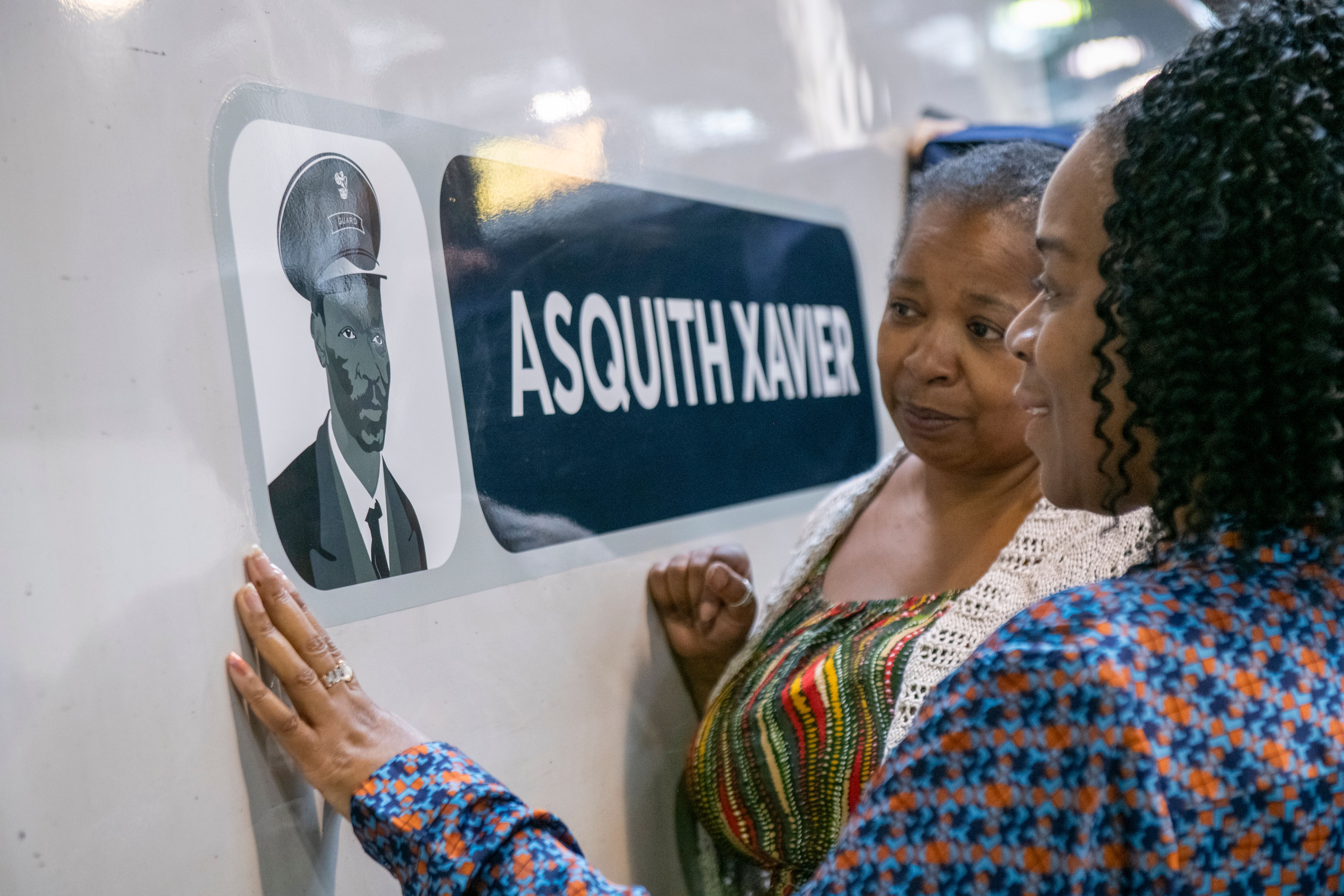Rail guard who helped end racist recruitment policy has train named in honour
In 1966 Asquith Xavier overturned a decision not to employ him as a guard at London’s Euston station because of his ethnicity.

Your support helps us to tell the story
From reproductive rights to climate change to Big Tech, The Independent is on the ground when the story is developing. Whether it's investigating the financials of Elon Musk's pro-Trump PAC or producing our latest documentary, 'The A Word', which shines a light on the American women fighting for reproductive rights, we know how important it is to parse out the facts from the messaging.
At such a critical moment in US history, we need reporters on the ground. Your donation allows us to keep sending journalists to speak to both sides of the story.
The Independent is trusted by Americans across the entire political spectrum. And unlike many other quality news outlets, we choose not to lock Americans out of our reporting and analysis with paywalls. We believe quality journalism should be available to everyone, paid for by those who can afford it.
Your support makes all the difference.A train has been named after a railway worker who overturned a racist recruitment policy, Avanti West Coast said.
In 1966 Asquith Xavier overturned a decision not to employ him as a guard at London’s Euston station because of his ethnicity.
This unofficial policy was known as the colour bar.
Avanti West Coast, which has named one of its Pendolino trains after him, said he “left an incredible legacy”.
Designers worked with the family of Mr Xavier – who died in 1980 – to create the train nameplate which depicts him working as a guard.
Mr Xavier’s daughter Maria Magdalena-Xavier said: “To think about what our father experienced, whilst applying for a promotion as a train guard at Euston station with the racial discrimination he faced, and now to this day – a train being named after him in his honour and recognising his important campaign – is truly amazing.
“I sincerely hope that the passengers on their train journey will take the time to look up and learn about our father’s journey to justice.”
Mr Xavier was part of the Windrush generation, moving to England from Dominica in 1956.
He initially worked for British Railways – later renamed British Rail – as a porter, working his way up to guard at London’s Marylebone station.
Guards were no longer required at the station following the closure of the Marylebone main line as part of the Beeching rail cuts.
He applied for a job doing the same role at Euston but was rejected because of his ethnicity and despite his experience.
After negotiations with the National Union of Railwaymen (NUR) – predecessor to the Rail, Maritime and Transport (RMT) union – British Railways overturned the decision and announced that none of its future job opportunities in London would be closed on racial grounds.
His story and determination for fair employment is one that everyone should know, and I’m delighted to see his name adorn this train for passengers up and down the country to see and be inspired by
Rail minister Huw Merriman said: “Asquith Xavier’s fight against discrimination paved the way for equality across the railways, leading to crucial change across the country and shaping the Race Relations Act.
“His story and determination for fair employment is one that everyone should know, and I’m delighted to see his name adorn this train for passengers up and down the country to see and be inspired by.”
Avanti West Coast managing director Andy Mellors said: “To mark Asquith Xavier’s achievements like this is a wonderful honour for someone who left an incredible legacy which goes beyond the rail industry.
“This will be seen around our network and will celebrate his campaign which still has an impact today.”
RMT general secretary Mick Lynch described the train naming as an “important initiative”.
He said: “I am proud that members of my union’s predecessor the National Union of Railwaymen backed Asquith in his fight and the union raised the issue with British Rail which agreed to end institutional racial discrimination at London stations.”
Mr Xavier lived in Chatham, Kent.
A plaque honouring him was unveiled at the town’s railway station in September 2020.